Pregnancy is a long process and not a single event. The duration of pregnancy makes it difficult to be just one process. Innumerable things happen within a week of pregnancy. Stages of pregnancy may be as trimesters, months or weeks.
It is for different purposes, and each case gives a different duration for the entire length of pregnancy. So it is essential for every woman to understand the various stages of pregnancy.
For example, a woman who is nine months pregnant is only 36 weeks pregnant. But pregnancy stages by week make it a 40 weeks long process.
It is best to understand the three cases of dividing the duration of pregnancy. Depending on the need your doctor will either schedule your appointments based on weeks or trimesters.
Months of pregnancy remain popular only as the phrase ‘nine months of pregnancy.’
Stages of pregnancy as trimesters
It is the most popular way of classifying pregnancy. Pregnancy has three trimesters. For most women, before they come to know, trimester, as the name suggests, is three months.
Three trimesters of three months make up nine months of pregnancy. But if you study, trimesters of pregnancy are categories of weeks of pregnancy.
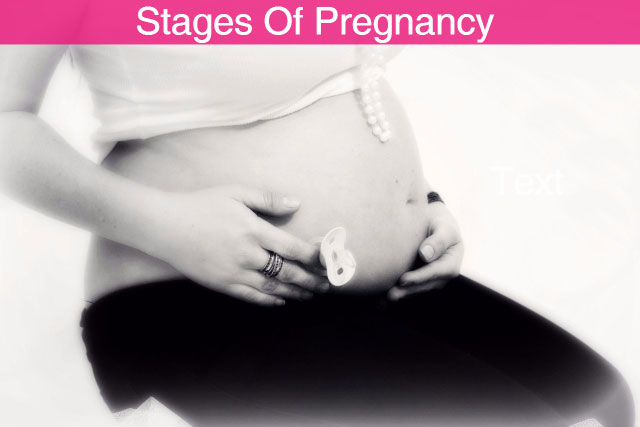
First trimester
It is the early stage of pregnancy from the first week to the fourteenth week. It is the most critical time of pregnancy. Some women never come to know that they were pregnant and they have a miscarriage during the first trimester. Chemical pregnancy also last for the initial weeks of the first trimester.
You need to take extra care during the first trimester because the pregnancy is very fragile. Morning sickness is at its worst during the first trimester.
All early symptoms of pregnancy occur during the beginning of the first trimester. A heightened sense of smell and frequent urge to pee are most common symptoms of first of the stages of pregnancy. Chromosomal abnormalities cause miscarriages during the first trimester.
Some women may continue to get period during the first trimester. Spotting during pregnancy is also mostly during the first trimester.
Implantation bleeding is the first decisive symptom of the first trimester.
Symptoms during the first trimester
- Nausea
- Morning sickness
- Bloating
- Fatigue
- Mood swings
- Constipation
- Appetite fluctuations
- Implantation bleeding
During the first trimester, your baby’s heart begins to form. The limbs start budding.
Nervous system formation also starts at 4th week of pregnancy. Sex organs begin to develop. The baby is one inch long at 8th week.
Eyelids close for the formation of eyeballs. They will next open after the 28th week. The baby at the end of the first trimester is about 3 inches.
Second trimester
The second trimester is the period from 14th week and lasts till the 28th week of pregnancy. The second trimester is the best part of pregnancy.
Your baby bump is noticeable but yet to become a watermelon. You feel more energetic and pregnancy symptoms are not as severe.
During the second trimester, your doctor will conduct many prenatal tests. The fetal protein test is for the 15th week. Test for gestational diabetes may also be on the checklist.
During every appointment, the doctor will monitor your baby’s heartbeat using Doppler. Ultrasound tests will show your baby more clearly.
You’ll be able to see him or her on a screen. Now ultrasounds will be more comfortable as your uterus expands and the membranes dilate.
Sex determination of baby is also a prenatal test during the second trimester. Pregnancy gender test is for the 20th week of pregnancy.
Symptoms during the second trimester
- Linea Nigra shows. It is a line from belly to the pubic region.
- You see dark patches of skin called Melasma.
- Numb hands
- Nipples become dark
- Itching and stretch marks
Your baby’s musculoskeletal development begins. Skin formation starts. Baby starts to swallow and moves.
Now he can even scratch himself. Your baby can hear you. Eyelids have lashes and brows. Your baby is 12 inches long at the end of the second trimester.
He has a fine layer of hair protecting him. Your baby has a regular sleeping pattern. Fingerprints develop and he has hair. His lungs have entirely formed but do not function.
Third trimester
The third trimester is not fixed. The period from 28th week till the 40th week or before comes under the category of the third trimester.
During the third trimester, your baby bump will grow to a large size. Back pain, leg cramps, and fatigue will be unbearable for some. Your doctor will advise you to look for pregnant water leaking at 37 weeks.
You can go into labor after that at any time. You’ll feel your baby moving, kicking and sleeping. Everything will be evident. Chances of miscarriage fall to less than 5% after the 14th week.
Oxytocin levels will start rising. It will induce rhythmic contractions. You will feel bloated and uncomfortable.
Constipation during the third trimester makes you feel like sitting in the loo for long durations. You will be in a cocktail of hormones and will have mentally challenging phases.
Postpartum depression can come early if you have other problems during this time. If you have complications like gestational diabetes, then you might undergo a C section after the 37th week.
A woman who completes 37 weeks is in full term. Nevertheless, the entire duration of pregnancy is for 40 weeks. Being due for delivery for more than 42 weeks is not permissible.
As the levels of fluids fall in amniotic sac and the baby can suffocate due to the umbilical cord.
Symptoms of the third trimester
- Baby moving towards the mucus plug
- Belly button coming out
- The sense of contractions may be false
- Breasts are tender and may leak
- Insomnia
- Shortness of breath
During this period, your baby has functional lungs; kicking becomes more often. In the 3rd trimester, the baby’s fine hair fall off, and the waxy protective layer becomes thicker.
She has soft bones. Now she is storing essential nutrients and calcium. She can even open and close her eyes.
The body fat increases. Baby at the end of 37 weeks is full term.
Stages of pregnancy by weeks
The second way of referring to the pregnancy stage is by weeks. Weeks stage of pregnancy is more common for prenatal tests appointments.
You have different tests after different weeks of pregnancy. For example, you have sex determination amniocentesis at 20th week.
Baby’s first ultrasound is at 6th week. You can hear your baby’s heartbeats after 12 weeks.
The weekly reference is for use by doctors. When you talk about your pregnancy, then you prefer months or trimesters. Mothers who tell their baby’s age in weeks, make it difficult for others!
The complete duration of pregnancy is 40 weeks. It is the actual length of gestation. Some women might go into labor during the 37th week.
Others might take longer. But beyond 42 weeks doctors do a C section surgery. It is surgery for taking out the baby with or without natural labor.
Any woman who is beyond 40 years is rarely allowed to wait for natural delivery.
Stages of pregnancy by months
Referring to pregnancy by months is confusing. A woman who is nine months pregnant yet has few weeks of labor. But people fail to understand the concept behind this stage of pregnancy.
Doctors rarely will ever ask you about your months of pregnancy. Trimesters and weeks are more common.
Another point is that a month is too long. During pregnancy, many changes happen continuously during a week.
A week is enough time to wait for the pregnancy test. It is how months stage of pregnancy becomes irrelevant.


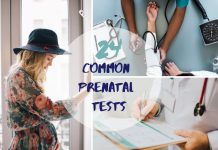
![First Trimester Of Pregnancy: Weeks 1 To 13 First Trimester [Week 1- Week 13 Overview]](https://www.pregnanteve.com/wp-content/uploads/2019/07/first-trimester-of-pregnancy-218x150.jpg)
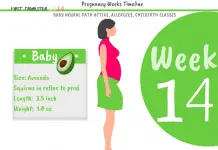
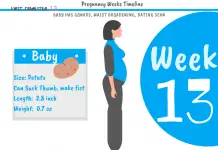
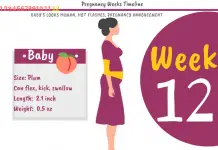
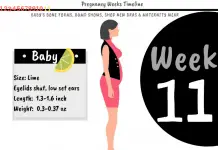
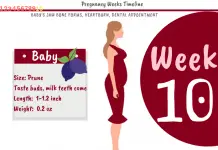
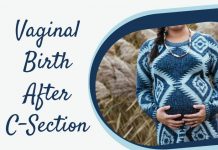
I really appreciate this article because it had a great information about pregnancy stages.This article is very useful for me during my pregnancy. It would be great if you post an information on 6th month pregnancy symptoms in brief.